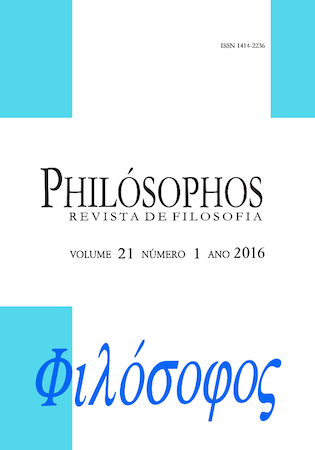IDEAL ÉTICO DE HUMANIDADE: HUSSERL E SUAS LIÇÕES SOBRE FICHTE
DOI:
https://doi.org/10.5216/phi.v21i1.41920Palavras-chave:
Husserl, Fichte, Ética, Religião.Resumo
O presente trabalho pretende oferecer uma breve apresentação das preleções que Husserl dedica à filosofia de Fichte, mais especificamente à discussão sobre a relação entre ética e religião que os textos fichtianos desenvolvem em sua fase intermediária. O curso ministrado por Husserl, divido em três lições e apresentado na cátedra de Freiburg entre os anos 1917 e 1918, parece mostrar claramente a íntima conexão entre as propostas husserlianas acerca de uma fundamentação absoluta da ética e a teoria defendida por Fichte a respeito dos diferentes estágios ou graus de desenvolvimento moral da humanidade. Mais do que isso, ambas as posições filosóficas idealistas concebem estreita ligação entre a concepção de um ideal ético e a defesa de uma visão sobre a natureza humana que compreende a mesma como puro agir da consciência. Nesse sentido, o artigo almeja indicar, ainda que de forma incipiente, como epistemologia, ética e religião aparecem interligadas de forma sistemática nas duas teorias.
Downloads
Downloads
Publicado
Como Citar
Edição
Seção
Licença
Autores que publicam nesta revista concordam com os seguintes termos:
- Autores mantêm os direitos autorais e concedem à revista o direito de primeira publicação, sendo o trabalho simultaneamente licenciado sob a Creative Commons Attribution License o que permite o compartilhamento do trabalho com reconhecimento da autoria do trabalho e publicação inicial nesta revista.
- Autores têm autorização para assumir contratos adicionais separadamente, para distribuição não-exclusiva da versão do trabalho publicada nesta revista (ex.: publicar em repositório institucional ou como capítulo de livro), com reconhecimento de autoria e publicação inicial nesta revista.















